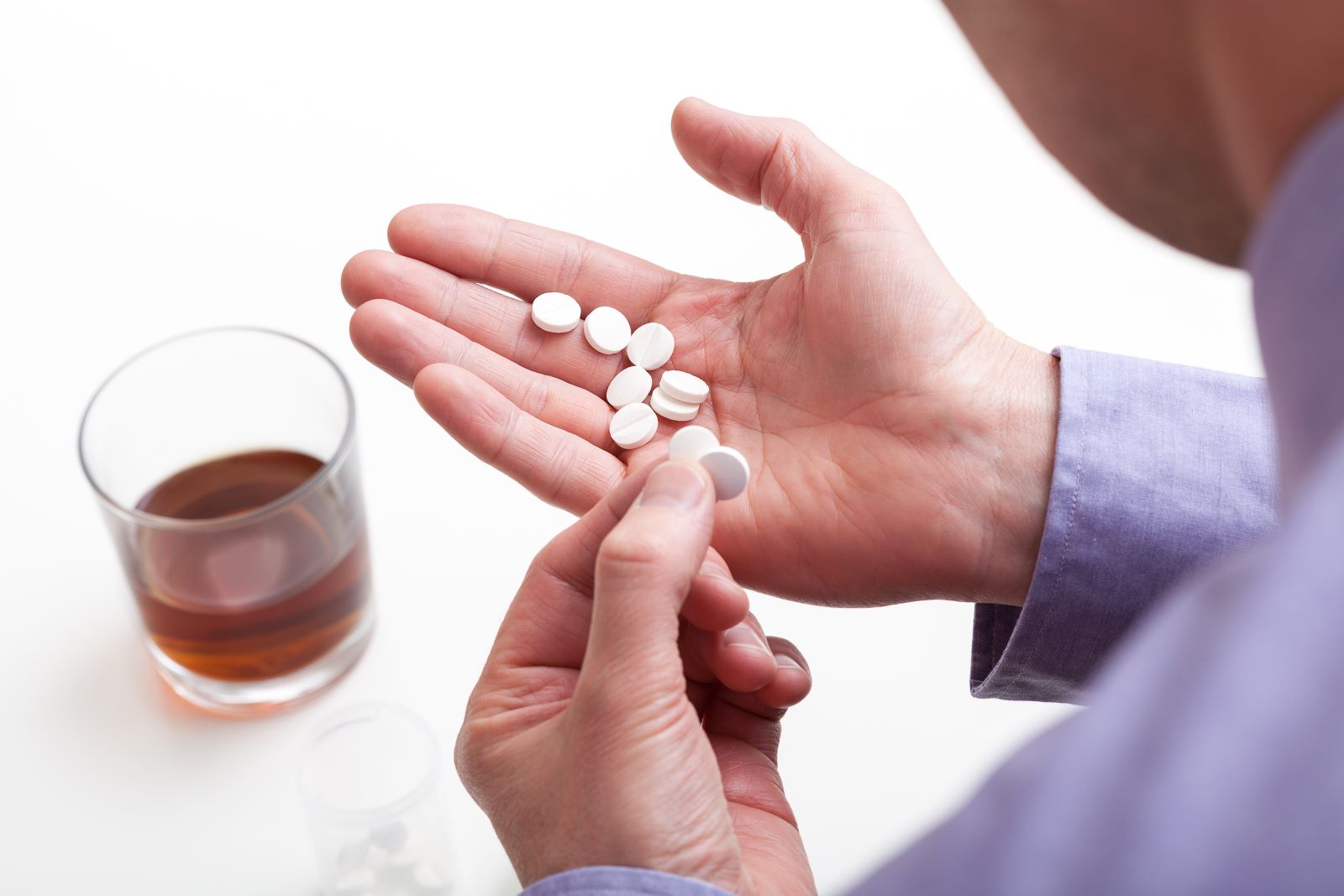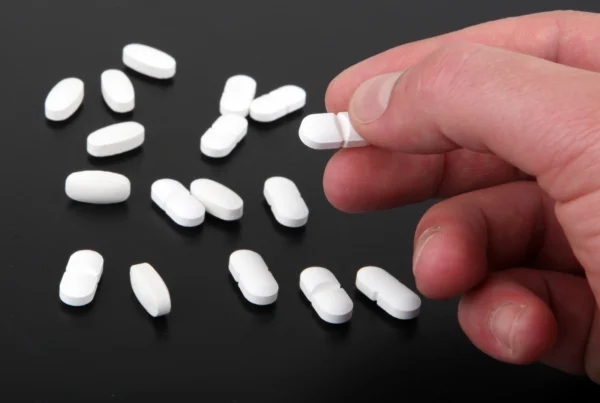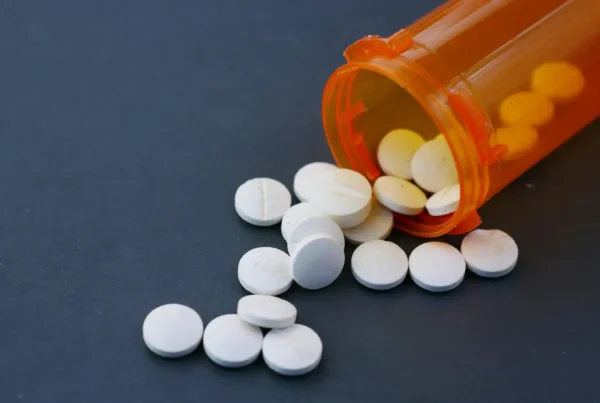
Table of Contents
Xanax® might not be quite as well known these days as it used to be, but it’s still a common and often effective anti-anxiety medication. For short-term use at least, this drug is an effective treatment for a wide range of anxiety disorders, and can even be helpful for getting people through specific anxiety-producing or triggering situations.
But, with alcohol so common in our society, and so many social situations involving drinking, at least a little, it makes sense for patients using Xanax® to wonder if they can also drink alcohol at the same time.
Here’s what you need to know about combining these two drugs, how they work, and the risks that come with taking Xanax® and alcohol together.
Is It Safe To Mix Xanax® And Alcohol?
Not generally, no. Xanax® belongs to a class of medications called benzodiazepines. These drugs, which are commonly prescribed to help people with anxiety disorders (the most common class of mental health disorders in the United States), are common and effective. As a note, Xanax® and other benzodiazepines aren’t typically maintenance medications outside of very specific situations. They may be more common as a maintenance medication when used for seizure disorders instead of anxiety disorders, and when they are used for other disorders like Lennox-Gestaut syndrome. But, when used for anxiety, these drugs are typically taken as needed and may be a supplemental medication for other anxiety medications. This is because, among other reasons, benzodiazepines can be addictive when used too often.
The reason we bring this up is that, for most people taking Xanax®, the medication isn’t something they use all the time. Avoiding alcohol while using Xanax® should, therefore, be easier than with other medications that you need to take full-time. However, that also means that the urge to use alcohol while taking Xanax® is all the more concerning, especially if you’ve seen that there is a warning against using alcohol at the same time as Xanax® in the prescription information from your pharmacist.
There are a wide range of reasons that you shouldn’t mix Xanax® and alcohol [1] specifically, which we’ll discuss in more detail in a moment. But, first and foremost, you need to know that mixing any benzodiazepine with alcohol isn’t a good idea. Combining these drugs can have a range of negative consequences from minor inconveniences to potentially life-threatening problems.
Dangers Of Mixing Xanax® and Alcohol
One the biggest risks that comes with combining Xanax® and alcohol is the fact that taking Xanax® and alcohol together can increase the effects of both drugs. This means that Xanax® and alcohol are synergistic, or that they have a combined effect that is greater than just the cumulative effect from both drugs. That’s important to understand because it means that you will have an increased reaction, even if you only drink a small amount of alcohol or take a very small dose of Xanax®. Both drugs also have an effect on your central nervous system, though they work in different ways. Ultimately, both drugs slow your central nervous system. In the case of Xanax®, that slowing is helpful for managing panic attacks, racing thoughts, and other side effects of anxiety.
Alcohol can have a similar effect, in small doses, but taking more of the drug can have the opposite effect, increasing anxiety and depression while still slowing your central nervous system. Slowing your central nervous system also has a wide range of non-mental effects. For example, alcohol making you feel more clumsy or making it more difficult to coordinate your movements, partially, because your central nervous system is slower than normal so it takes longer for signals to go from your brain to your spine and the nerves in charge of each muscle to tell you how to move or make adjustments. Xanax® can have a similar effect, though it’s usually less pronounced unless you take significantly more of the medication than you need, or are using it illicitly for recreational purposes.
Both drugs can also make it more likely for you to lose consciousness, and that will happen faster if you combine the drugs. The additional risk of stopping breathing while unconscious is also greater when you combine drugs than it would be for either drug on its own.
We’ll talk more about the effects on mood in a moment, but it’s worth mentioning here that combining these drugs can also lead to erratic emotions, impulsive behavior, and can further contribute to feelings of anxiety and depression [2].
Does Taking Xanax® And Alcohol Together Increase Your Addiction Risk?
Yes. Both Xanax® and alcohol can be highly addictive drugs in their own right, and combining the two of them can also lead to an increased risk of addiction, both to the individual drugs and to taking them together.
That’s a huge risk since both benzodiazepine addiction and alcohol addiction can have a wide range of negative side effects and consequences, and because both can be increasingly harmful when taken for a long time. Unfortunately, an additional risk here is the fact that having a mental health disorder and an addiction at the same time can make treating those disorders significantly harder, and often requires a specialized treatment designed to accommodate both the mental health disorder and the addiction at the same time.
There is a treatment like that available, but it can be more intensive and may take longer than a more straightforward case of either addiction or mental health disorder alone.
The specific feelings of combining these drugs may also be an increased source of addiction, and you may not feel like one drug is enough to handle cravings. Because addiction also often comes with a tolerance to the drug that increases over time, you’re also likely to increase how much of each drug you use. That comes with its own problems, including an increased risk of overdose, and magnified risks of unsafe behavior while under the influence, and organ damage or other rarer consequences becoming more likely.
Mental and Emotional Side Effects Of Combining Xanax® and Alcohol
In addition to physical risks like too much sedation, behaving in odd and risky ways, and the risk of potential organ damage, addiction, and more, there are also mental side effects [3].
One of the big problems from combining these medications is that alcohol can make Xanax®, and any other mental health medications you might be taking at the same time, less effective. That’s because, even though alcohol can make you feel good in the moment, its long-term effects increase feelings of depression and anxiety. Short term, those risks aren’t very big from just an occasional drink or two.
Long term, especially with regular drinking or combining Xanax® and alcohol, the effects can get more serious over time.
That’s important to remember because drinking more often or drinking more when you drink can feel like a short-term solution to complicated feelings and problems. But long term, it tends to make those same feelings and problems worse.
Another risk to be aware of is that you might start to feel like Xanax® alone isn’t enough to control symptoms of anxiety or panic attacks. That can make you more prone to combining the drugs, even if you understand the risks. Once you start combining the drugs regularly, an addiction is a likely outcome.
Are There Long-Term Risks From Combining Xanax® And Alcohol?
Yes. Long-term use or misuse of both benzodiazepines and alcohol can have serious impacts on your health and mental wellbeing.
That’s because both of these drugs can have consequences if you take them too long, in large doses, or take them when you don’t need them.
Risks like liver damage, addiction, and poorer mental health outcomes are all long-term risks. Once one of these complications gets started, you’re likely to feel the impacts from the problem for months or years after you stop using Xanax® and alcohol.
Worse, some of these side effects, especially the effect on your mood and mental health, might be permanent. These kinds of side effects are important to understand, manage, and may require long-term treatment or other medications to overcome so you can have a healthier, more normal life.
 How To Get Help
How To Get Help
If you’re struggling with Xanax® and alcohol, especially using them together, you’re not alone. One of the reasons we understand the risks of combining these drugs so well is that many people end up combining them.
There are many reasons you might have started taking Xanax® and alcohol together, but if you’re ready to get help for the problem, you’re already on the right path. Getting comprehensive addiction treatment, especially with a mental health disorder or a dual diagnosis, can help you learn more about yourself, your triggers, and the coping mechanisms and management tools that can help you live a happier and healthier life.
If you’re looking for that kind of comprehensive addiction and mental health treatment, we can help. Contact Ocean Recovery to learn more about our treatment programs, intake process, and how we can help you.
Sources:
[1] Ng, C. PharmD. GoodRx. Can You Drink Alcohol With Anxiety Pills Like Xanax And Ativan? (2022, November 29). Retrieved from https://www.goodrx.com/classes/benzodiazepines/alcohol-anti-anxiety-meds-ativan-xanax on 2023, March 6.[2] ADAA. Anxiety Disorders – Facts & Statistics. (n.d.). Retrieved from https://adaa.org/understanding-anxiety/facts-statistics on 2023, March 6, 2023.
[3] Healthline. (2019, November 14). What Happens When You Combine Alprazolam (Xanax) and Alcohol. Retrieved from https://www.healthline.com/health/xanax-and-alcohol#xanax-and-alcohol-side-effects on 2023, March 6.

 How To Get Help
How To Get Help


